Gated communities convey a sense of luxury and exclusivity that non-gated communities do not have. The truth is that gated properties are more common than ever. Gated neighborhoods have seen a significant rise in popularity over the years, and their appeal extends beyond just security measures. They are often chosen for the tranquil atmosphere they provide, with controlled access points and physical barriers that create a sense of safety and peace of mind.
We’ll discuss what defines a gated community, personal considerations for living in one, the advantages and disadvantages, and the financial feasibility of residing there. I aim to clarify the realities of gated community living based on my experience as a resident and a professional real estate agent.
Summary of Content
(click any section)
THE PROS:
What is a Gated Community?
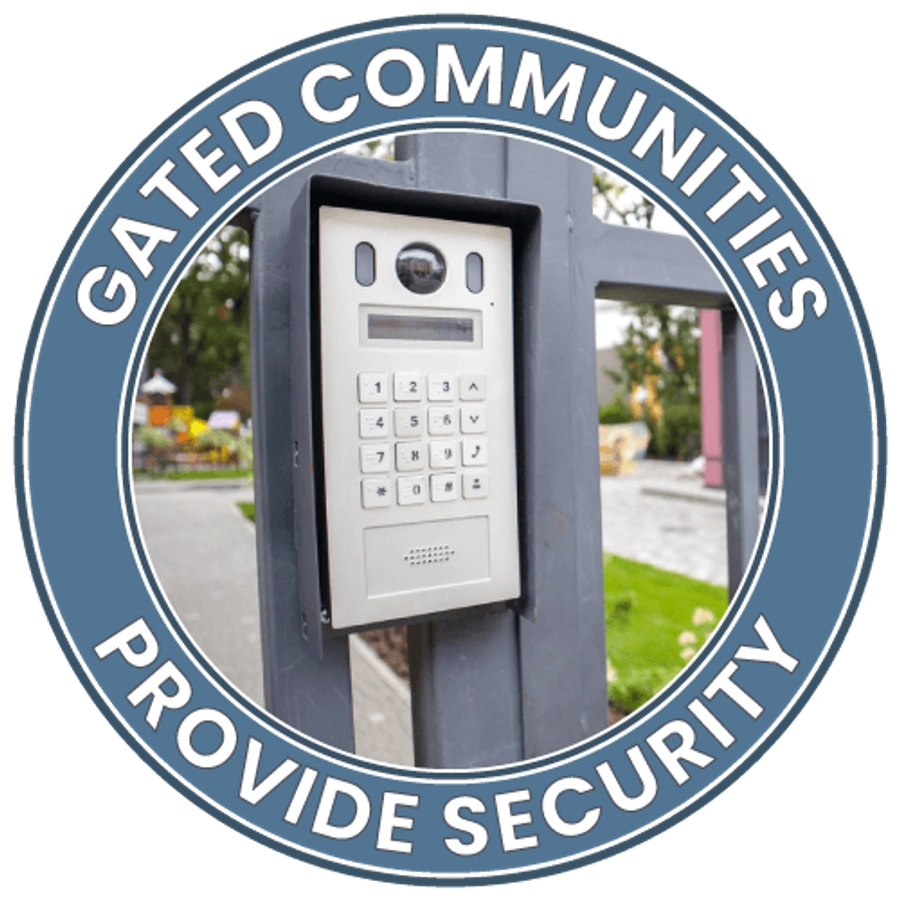 A gated community is a type of residential community that is enclosed by walls or fences and has controlled entrances with gates. They offer electronic access through a keypad, camera, or a security guard. These communities are designed to provide their residents a higher level of privacy and security. The entrances are usually guarded or monitored, restricting access to non-residents, which can give a sense of safety and exclusivity.
A gated community is a type of residential community that is enclosed by walls or fences and has controlled entrances with gates. They offer electronic access through a keypad, camera, or a security guard. These communities are designed to provide their residents a higher level of privacy and security. The entrances are usually guarded or monitored, restricting access to non-residents, which can give a sense of safety and exclusivity.
Gated communities can vary significantly in size and style, ranging from small neighborhoods of townhomes to large, sprawling estates. They often feature shared amenities like parks, swimming pools, and clubhouses. In addition, gated communities typically have homeowners' associations (HOAs) that oversee the maintenance of common areas and enforce community rules and standards.
The concept of gated communities is not just limited to residential housing; it can also include retirement villages, condominiums, and even commercial complexes. The appeal of these communities often lies in their promise of a tranquil, secure environment, along with the sense of community and exclusivity they offer.
What’s It Like to Live in a Gated Community?
I once resided in a gated community and learned a lot from the experience. The area was surprisingly affordable, including the homeowner association fees. A fence encircled our community, and the entrance was equipped with an unmanned gate. Access was controlled via a keypad, and I also had a remote provided by the HOA for convenience. During the few years I lived there, I experienced both positive and negative aspects of this living arrangement. Here is what I learned:
THE PROS OF LIVING IN A GATED COMMUNITY:

 Gated Communities Provide More Security and Safety
Gated Communities Provide More Security and Safety
Living in a gated community gave me a strong sense of security and safety. I found that most people in the community either resided there, were visiting someone, or had a specific purpose for being there. This sense of controlled access contributed significantly to my peace of mind.
Lynn Addington, a Professor of Justice, Law & Criminology, supports this sentiment with more than just anecdotal evidence. Her research found that homes in non-gated communities are 33% more likely to be burglarized than those in gated communities. While it's true that gated communities are not impenetrable and incidents can still occur, the likelihood felt lower in my experience. The presence of controlled access and other security measures seemed to effectively discourage unauthorized individuals from entering my community.
 Gated Neighborhoods Provide More Privacy
Gated Neighborhoods Provide More Privacy
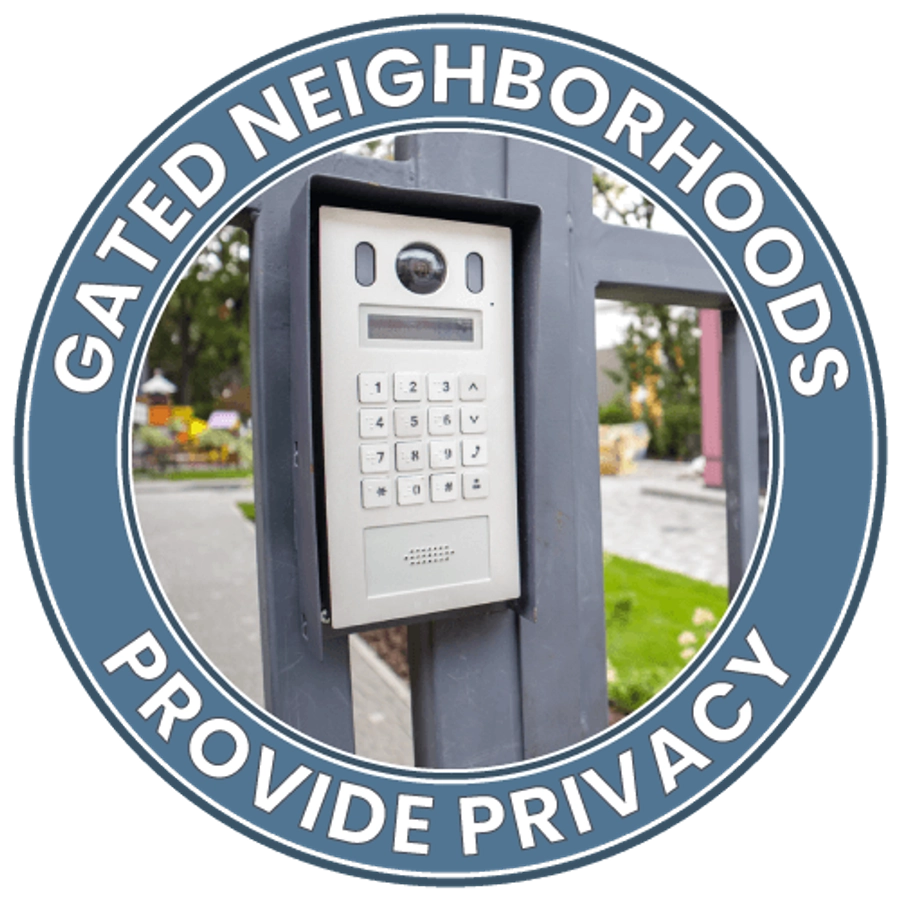 One aspect I particularly valued was the heightened privacy in a gated community. Such communities prioritize privacy, allowing only residents and authorized guests, which effectively keeps uninvited visitors and door-to-door salespeople away. This control over who enters the community results in less traffic and fewer disruptions, fostering an exclusive environment.
One aspect I particularly valued was the heightened privacy in a gated community. Such communities prioritize privacy, allowing only residents and authorized guests, which effectively keeps uninvited visitors and door-to-door salespeople away. This control over who enters the community results in less traffic and fewer disruptions, fostering an exclusive environment.
It was a relief not to be concerned about unexpected guests or salespeople (like solar company representatives) showing up unannounced. Additionally, many gated communities enhance privacy with landscaping, solid walls, or barriers along their boundaries, further reducing visibility from the street into the community.
 Gated Living Areas Have Less Traffic
Gated Living Areas Have Less Traffic
The limited access in my gated community greatly reduced neighborhood traffic, which was particularly appealing for those desiring a calm living environment with minimal noise, parking issues, and congestion. This restriction on road access not only maintained privacy for residents and their approved guests but also created a safer space, especially beneficial for young children and pets.
Another advantage was that the community wasn't used as a shortcut during rush hour, maintaining its quiet environment. I also appreciated the availability of guest parking, which made hosting visitors hassle-free. That said, this setup had a few drawbacks, which I will touch upon later.
 Gated Communities Have Better Amenities
Gated Communities Have Better Amenities
Gated communities often have and highlight exclusive amenities like swimming pools, tennis courts, golf courses, walking trails, and fitness centers. To gain access, you need to live in the community or be a guest of someone who does. These facilities and services are for the enjoyment and use of the homeowners themselves.
The stricter entry policies in gated communities often mean fewer crowds and better accessibility for residents. Such amenities can foster a sense of community, contributing to the neighborhood's homely feel. However, it's important to note that not every gated neighborhood has an extensive list of amenities. In my experience, the community I resided in had a few select amenities like a park, open spaces, a pet area, and several trails. These facilities were exclusively for residents and their guests. I particularly noticed how well-maintained, open, and uncrowded these areas were, adding to the overall quality of life in the community.
 Gated Neighborhoods Offer a Sense of Belonging
Gated Neighborhoods Offer a Sense of Belonging
Residing in gated communities often cultivates a strong communal spirit among residents with shared interests and values. These neighborhoods typically organize events and activities, promoting a sense of belonging and facilitating social interactions. The availability of communal amenities such as golf courses, pools, and clubhouses not only enhances lifestyle but also plays a significant role in building closer ties among neighbors, encouraging an environment of connectedness.
In my gated community, I frequently enjoyed socializing with my neighbors, particularly during the summer. We often gathered for activities like walking the trails or having barbecue sessions outdoors. Starting conversations was effortless, as living in a gated community was a common experience we all shared, making it a great conversation starter!
 Gated Communities Have Well-Maintained Infrastructure and Common Areas
Gated Communities Have Well-Maintained Infrastructure and Common Areas
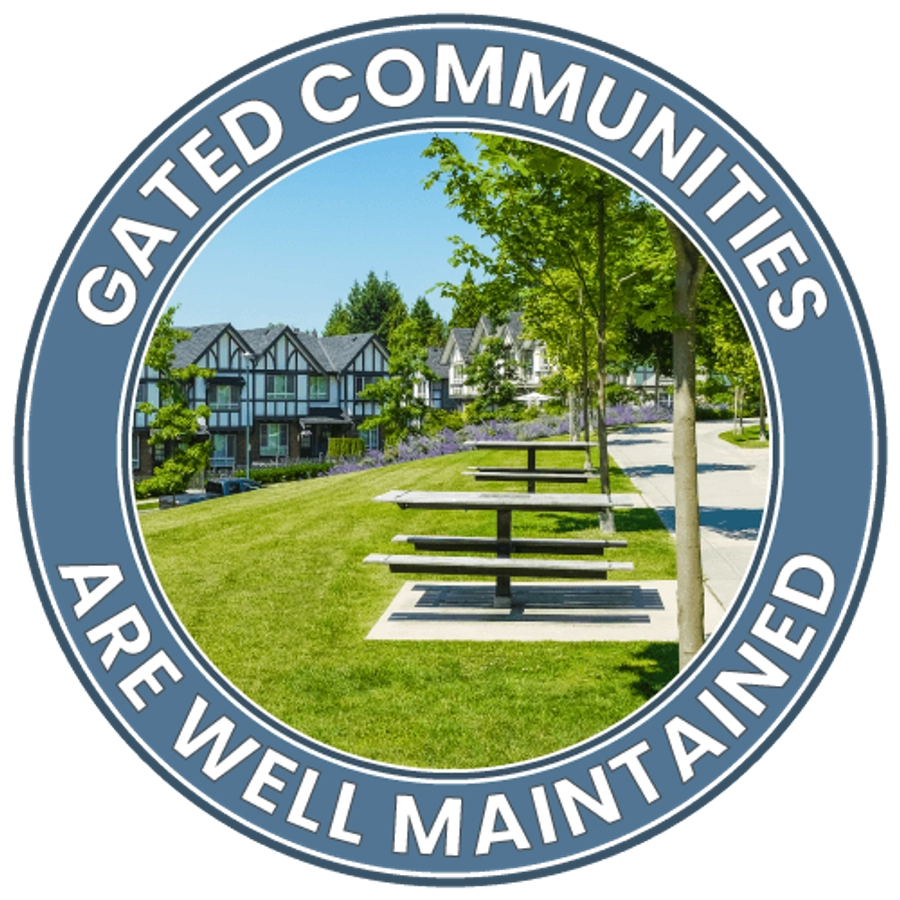 Homeowners' associations (HOAs) in gated communities are instrumental in managing and maintaining shared spaces. These include parks, recreational facilities, and landscaping, ensuring these areas are attractive and functional. The HOA typically employs landscapers and cleaning staff to care for these common areas. As a result, residents enjoy well-manicured spaces and amenities, such as walking trails, enhancing the community's appeal and livability.
Homeowners' associations (HOAs) in gated communities are instrumental in managing and maintaining shared spaces. These include parks, recreational facilities, and landscaping, ensuring these areas are attractive and functional. The HOA typically employs landscapers and cleaning staff to care for these common areas. As a result, residents enjoy well-manicured spaces and amenities, such as walking trails, enhancing the community's appeal and livability.
However, alongside the HOA's efforts, homeowners bear individual responsibilities. They are typically required to upkeep their properties, which is significant in preserving the community's overall aesthetic and condition. This joint approach, combining the HOA's management of communal areas and homeowners' care for their properties, ensures the community remains visually appealing and well-maintained.
 Gated Communities Offer Higher Property Values
Gated Communities Offer Higher Property Values
Research by the American Real Estate Society (ARES) indicates that homes within gated communities tend to have a higher market value, with an average price increase of around $30,000. Ken Johnson, Ph.D., ARES Publication Director and a real estate economist at Florida Atlantic University's College of Business, confirms this finding. He states that the research conclusively shows homes in gated communities are sold at a premium compared to similar homes in non-gated areas. Dr. Johnson is also known for co-developing the Beracha, Hardin, and Johnson Buy vs. Rent Index.
However, it's important to note that homes in gated communities are not necessarily out of reach financially. While they tend to be more expensive than similar properties in non-gated areas, the prices within gated communities vary significantly, ranging from relatively affordable to highly luxurious. For instance, the gated community I resided in was more affordable, yet it still offered excellent maintenance, security, and overall quality of living.
THE CONS OF LIVING IN A GATED COMMUNITY:

 Entering & Exiting Through A Gate is Less Convenient
Entering & Exiting Through A Gate is Less Convenient
Unlike typical neighborhoods with multiple entry points, gated communities usually have only one or two entrances. This limited access can create a bit of a challenge for residents, guests, emergency services, and delivery personnel. Gaining entry often involves additional steps, such as using a gate code, passing through a guard, or using a key FOB.
Inviting guests into these communities often requires more planning and can be cumbersome. Depending on the community's rules, guests might need to come during certain hours, use a specific entry code, or be pre-registered with a gate attendant. While the secure entrance is great for keeping the community safe, it can complicate deliveries.
Delivery drivers might leave packages at the gate or another less convenient location, and residents might need to give special instructions for each delivery. From personal experience, I've encountered challenges with visitors gaining access and with food deliveries. I once faced a problem in my community when my gate remote stopped working, and I couldn’t remember the gate code.
 Gated Communities Offer a False Sense Of Security
Gated Communities Offer a False Sense Of Security
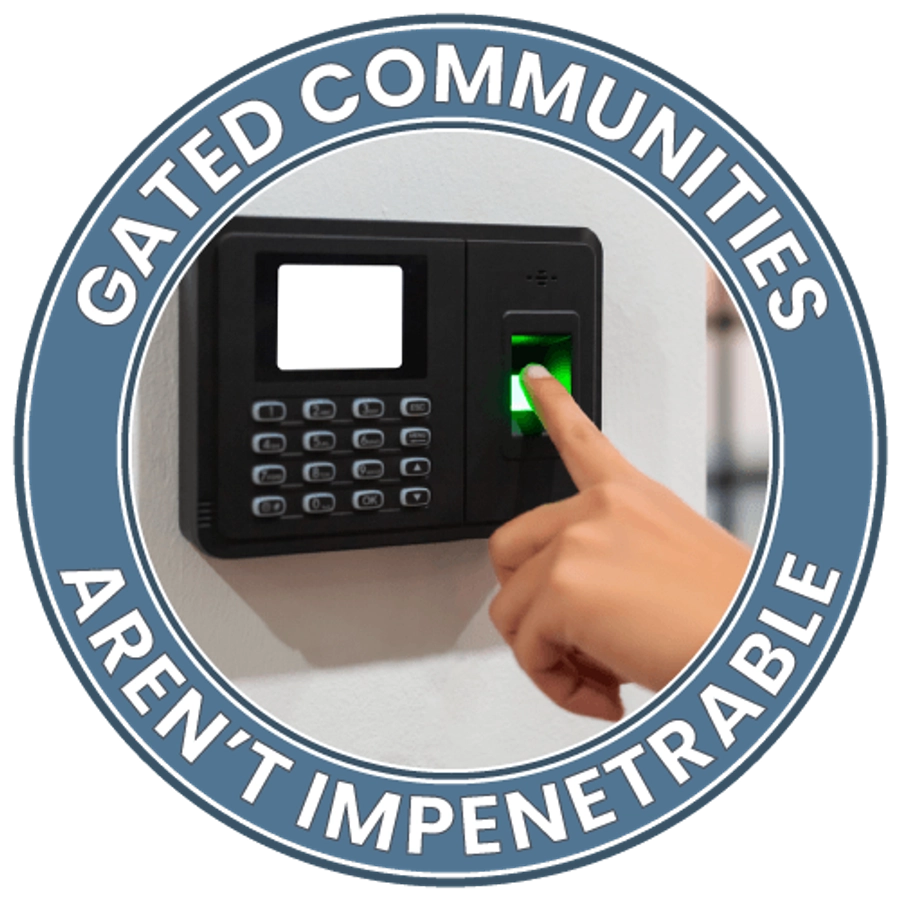 The perception of gated communities being inherently safer and more secure than non-gated ones is not as straightforward as it seems. The added security measures and restricted access can sometimes lead homeowners to a false sense of security. Simply building walls or fences around a community does not guarantee the prevention of crime or accidents. For example, there can be vulnerabilities when a gated neighborhood relies solely on technology, such as keypads or key FOBs. While providing a barrier, these systems may not be foolproof against determined intruders or mishaps.
The perception of gated communities being inherently safer and more secure than non-gated ones is not as straightforward as it seems. The added security measures and restricted access can sometimes lead homeowners to a false sense of security. Simply building walls or fences around a community does not guarantee the prevention of crime or accidents. For example, there can be vulnerabilities when a gated neighborhood relies solely on technology, such as keypads or key FOBs. While providing a barrier, these systems may not be foolproof against determined intruders or mishaps.
Security codes in gated communities are vulnerable to compromise when residents frequently share them with a wide range of people like family, friends, or food delivery drivers. These codes are also commonly given to workers performing maintenance tasks within the community, such as landscaping, construction, or trash removal. There's a risk that these codes could be misused later or passed on to unauthorized persons. In addition, there's the issue of "tailgating," where unauthorized vehicles enter by closely following another car with legitimate access. This method of unauthorized entry is a significant concern for the security of gated communities.
The presence of secure entry points, limited traffic, and lower speed limits in gated communities can sometimes lead to a false sense of security among families. This perception of safety might result in less vigilant supervision of children. In such environments, kids may engage in reckless street play, wrongly assuming that the community is secure and safe from harm. I encountered this situation multiple times, where unsupervised children would suddenly run in front of my vehicle while chasing a ball without paying attention.
The belief in the inherent safety of gated communities can sometimes lead homeowners to skip the installation of security systems and become less vigilant about locking vehicles and homes. Recognizing that security in these communities is not without vulnerabilities is important. When security measures are relaxed due to a mistaken sense of safety, it can potentially heighten the risks.
 Gated Neighborhoods Have Strict Rules, Restrictions, and Maintenance Responsibilities
Gated Neighborhoods Have Strict Rules, Restrictions, and Maintenance Responsibilities
Gated communities come with Homeowners’ Associations (HOAs) that provide various services such as maintenance and management. They also restrict what homeowners can and cannot do with their properties. You must abide by these rules or face fines and worse. Common HOA rules can include noise restrictions, parking restrictions, pet restrictions, trash and recycling rules, exterior maintenance requirements, and even restrictions on the use of Christmas lights and decorations.
The rules can relate to the use of your home as well. For example, some HOAs prohibit renting out your property to roommates or renting your home for a short term, and in some cases, they can prohibit long-term rentals. While these rules help maintain safety and a uniform and tidy appearance, they can also limit personal freedoms and creativity. Some communities are less strict than others. It’s important to read and understand the rules of a specific community before committing to calling the neighborhood home.
 Gated Communities Have Higher HOA Costs
Gated Communities Have Higher HOA Costs
Gated community property owners can often experience higher overall costs, involving several additional expenses. Research by the American Real Estate Society (ARES) indicates that homes in these communities command significantly higher prices, averaging an increase of almost $30,000. The elevated property value leads to higher property taxes, subsequently impacting the monthly mortgage payment.
Homeowners Association fees tend to be higher due to increased amenities, maintenance, and community upkeep, sometimes involving multiple HOAs. According to U.S. Census data, the national average monthly HOA fee is $170, but in gated communities, it often ranges from $200 to $400. In exclusive cases like the Pine Terrace community in Colorado Springs, monthly HOA expenses can soar to $878.00. Beyond these fees, residents might bear a share of security costs, infrastructure repairs, and other neighborhood services, including additional charges for parking if garage or driveway options are limited.
 Gated Living Areas Offer Limited Privacy
Gated Living Areas Offer Limited Privacy
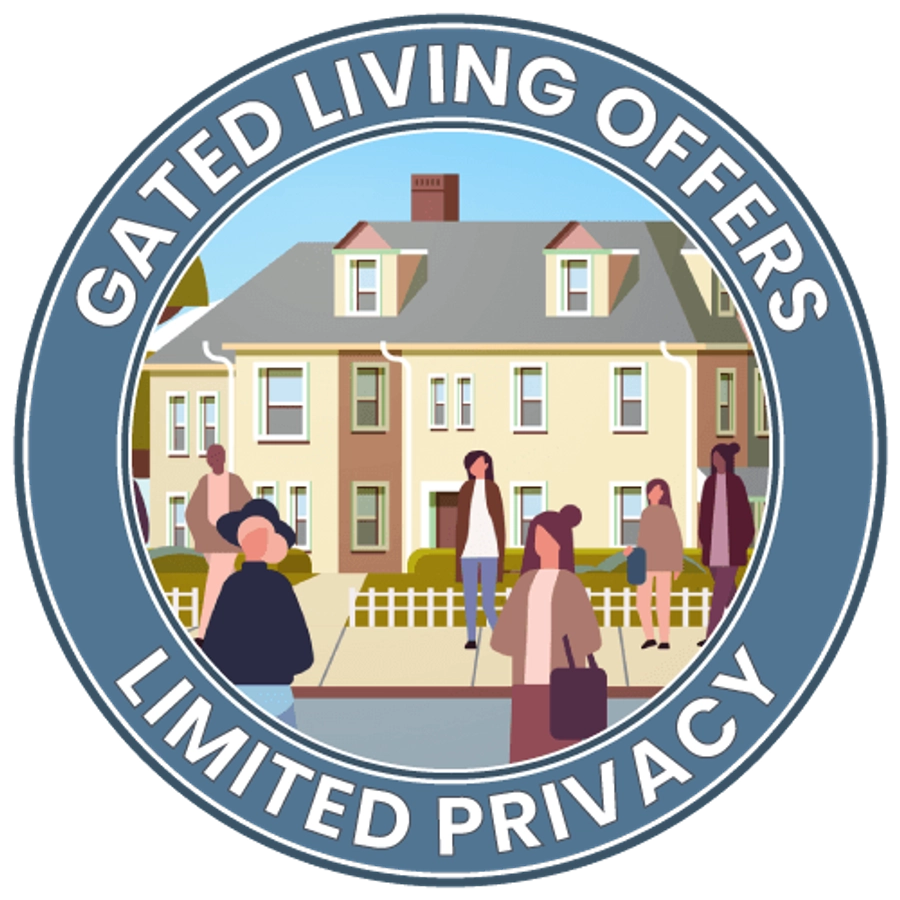 Gated communities are designed with security measures like guards and surveillance systems for resident safety. However, these can sometimes lead to a perceived invasion of privacy, with residents feeling constantly monitored. While intended to strengthen security, some may view this aspect negatively.
Gated communities are designed with security measures like guards and surveillance systems for resident safety. However, these can sometimes lead to a perceived invasion of privacy, with residents feeling constantly monitored. While intended to strengthen security, some may view this aspect negatively.
The close community dynamics also pose challenges. With less anonymity and increased visibility, residents might experience a sense of obligatory social interaction. The close proximity of homes, shared spaces, and frequent neighbor encounters can further decrease the feeling of privacy. Additionally, the regulations imposed by Homeowners’ Associations in these communities can reduce personal freedoms, such as exterior design choices or certain activities.
My experience in such a community was largely positive, though not without minor issues. For instance, I was reported anonymously for leaving trash cans out too long. On another occasion, a brief encounter with a neighbor, who appeared to be seeking company, delayed me when I was in a hurry. The compact nature of gated communities makes it challenging to maintain distance from fellow residents if needed.
 Gated Neighborhoods Have a Potential for Conflict
Gated Neighborhoods Have a Potential for Conflict
The proximity of residents in gated communities often leads to potential conflicts, such as noise complaints or property boundary disputes. The rules that govern these communities can sometimes heighten these issues. A case in point is when neighbors repeatedly report others to the HOA out of malice. To reduce the likelihood of such conflicts, it's crucial to maintain ongoing communication with HOA managers and community board members.
Active engagement in community meetings offers a platform to express suggestions and address concerns, aiding in the creation of a more harmonious environment. Maintaining friendly relations and open lines of communication with neighbors can be instrumental in averting and resolving conflicts.
What’s the Difference Between Guarded and Unguarded Gated Neighborhoods?
Guarded and unguarded gated communities differ mainly in terms of the presence or absence of security personnel at their entrance points.
In guarded gated communities, a security guard is stationed at the entrance. This guard is responsible for monitoring who enters and exits the community. They often check visitors' credentials and maintain a record of all guests, contractors, and other visitors. This presence of a physical guard adds an extra layer of security and can deter unauthorized entry.
It's also common for guard-gated communities to have more aesthetically pleasing entrances and potentially higher property values due to the perceived increase in security. However, these communities typically have higher homeowner association (HOA) fees to cover the cost of security personnel and additional security measures.
Unguarded gated communities rely on automated systems like keypads or remote controls to manage access. While these communities don't have the personal interaction and direct monitoring that come with a manned security gate, they still offer controlled access, which can deter unwanted visitors. These communities often have lower HOA fees as they don't incur the costs of staffing a security gate. However, the level of security might not be as robust as in a guard-gated community.
Both types of gated communities provide benefits such as a sense of privacy, limited solicitation, and slower vehicle speeds for increased pedestrian safety. The choice between guarded and unguarded gated communities often comes down to personal preference, with factors like the level of security desired, cost considerations, and lifestyle preferences playing a role in the decision.
How do HOAs typically enforce the rules of the community?
Homeowners' Associations typically enforce rules through a structured process:
Notification and Warning: When a rule violation is identified, the HOA usually first issues a warning. This notification informs the homeowner of the violation and often provides a timeframe for correcting the issue.
Fines: The HOA may impose fines if the violation persists beyond the warning period. These fines are often outlined in the HOA’s governing documents and can be levied for each day the violation continues.
Hearing: The homeowner may be summoned to a hearing before the HOA board for ongoing or serious violations. This allows the homeowner to present their case or negotiate a resolution.
Legal Action: In cases of continued non-compliance, the HOA may escalate the matter to legal action. This can involve placing a lien on the property or, in extreme cases, forcing a sale.
Physical Remediation: Some HOAs might correct the violation themselves (e.g., removing unauthorized structures) and bill the homeowner for the costs.
It's important to note that HOAs must follow their own rules and regulations, as well as state and local laws when enforcing violations. Homeowners have the right to understand the violation, respond to accusations, and seek mediation or legal counsel if necessary.
What factors should be considered when choosing a gated community?
When choosing a gated community, several key factors should be considered to ensure it aligns with your lifestyle and preferences:
Security Features: Evaluate the security measures in place, such as gate attendants, surveillance cameras, and patrolling. Consider how these features align with your expectations for safety and privacy.
HOA Rules and Fees: Understand the Homeowners’ Association (HOA) rules and the fees involved. Assess if the rules are compatible with your lifestyle and if the fees are within your budget.
Amenities and Facilities: Look at the amenities provided, such as pools, gyms, parks, and community centers. Ensure they meet your recreational and social needs.
Location and Accessibility: Consider the community’s proximity to your workplace, schools, shopping centers, medical facilities, and other essential services. Accessibility to public transportation and major highways should also be considered.
Community Culture and Demographics: Understand the community culture and demographics. Are there families with children, retirees, or a mix of residents? This can impact the social atmosphere and activities available.
Property Maintenance and Appearance: Observe the maintenance of common areas and individual properties. Well-maintained landscapes and facilities indicate effective management.
Resale Value and Investment Potential: Research the property values in the area and their historical trends. This is important for understanding the potential return on investment.
Noise and Activity Levels: Consider the community’s overall noise and activity levels. Some gated communities are more serene, while others bustle with activities and social events.
Privacy Considerations: Assess how the layout and rules of the community impact personal privacy.
Guest Policies and Parking: Understand the policies for guests and parking, especially if you anticipate frequent visitors.
Choosing the right gated community involves balancing these factors with your needs and priorities for an optimal living experience.
Conclusion
Residing in a gated community is often a financially viable option and can be a fitting choice for many. Like any residential area, gated communities have their advantages and disadvantages. Overall, they provide a desirable living environment. From my personal experience, living in a gated community was pleasant, and I would consider choosing such a community again for future residence.
When exploring housing options, it's essential to thoroughly research and visit various gated communities to find one that matches your specific preferences and requirements. Working with a real estate agent with expertise in local gated communities can be highly beneficial. They can provide insights and help you understand each community's unique characteristics and offerings, helping you make a well-informed decision.
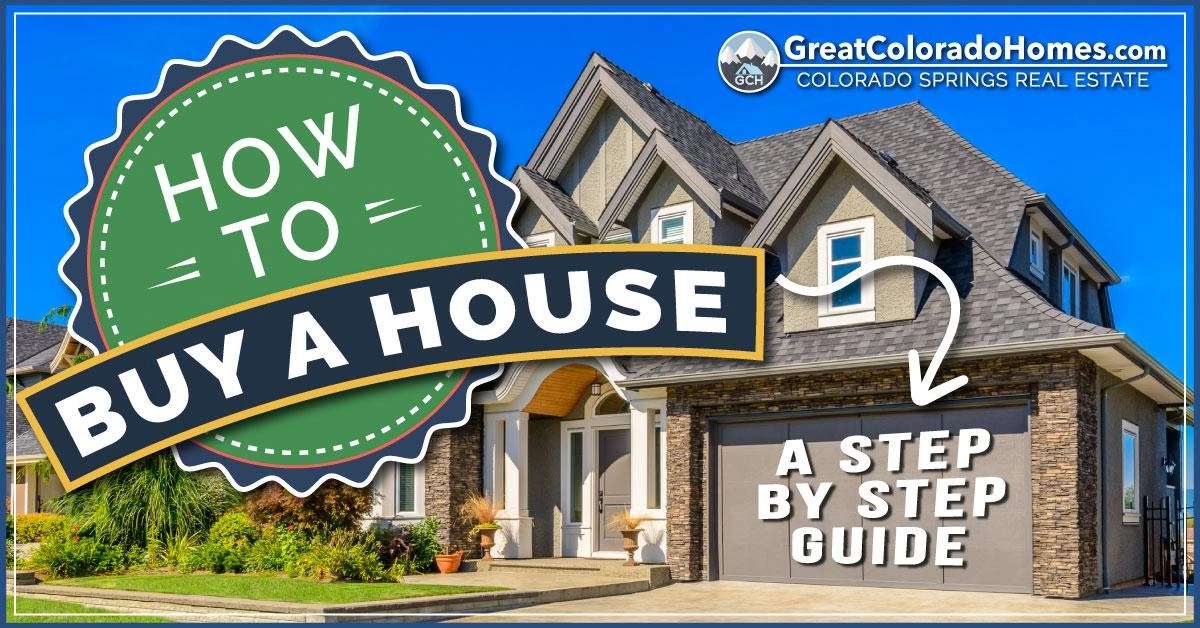
.png)
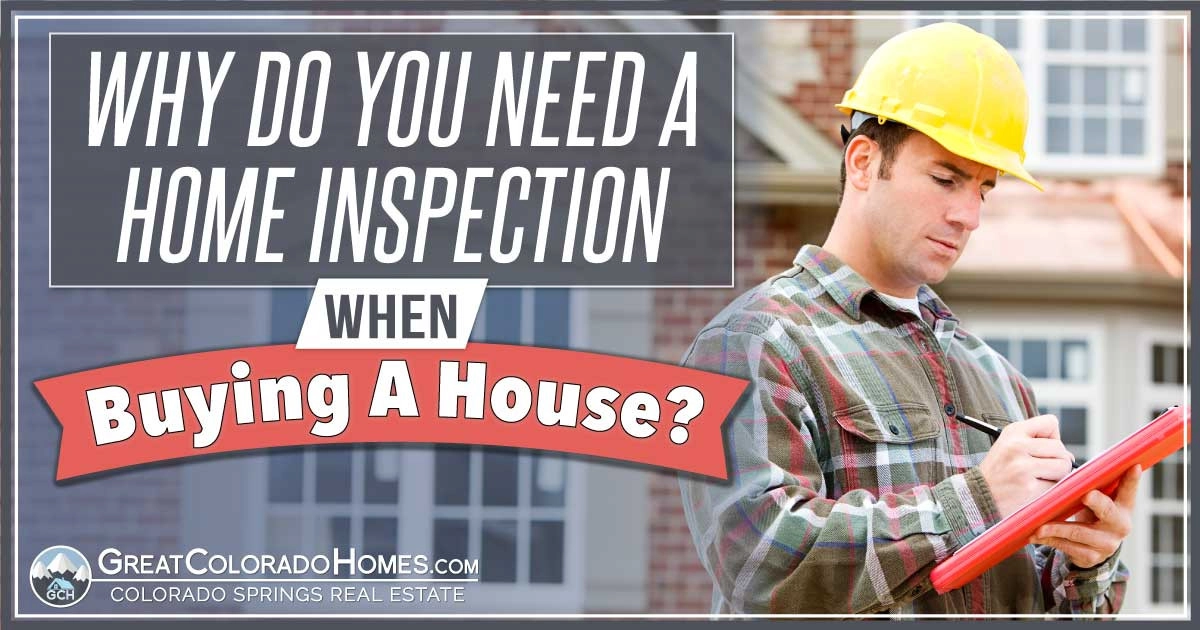

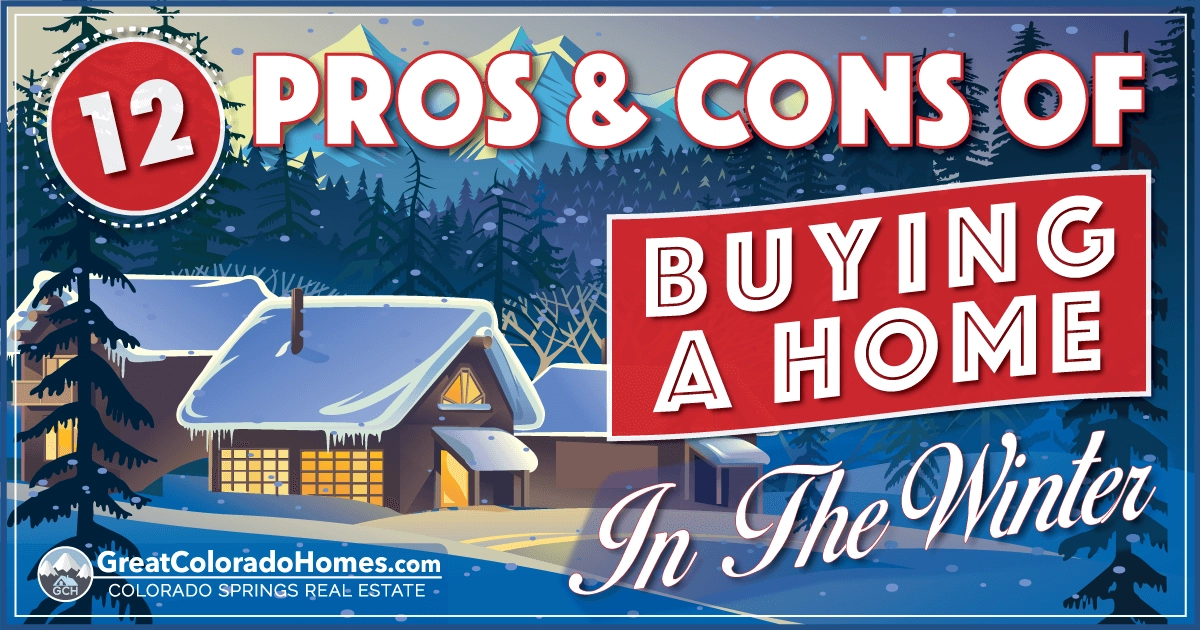
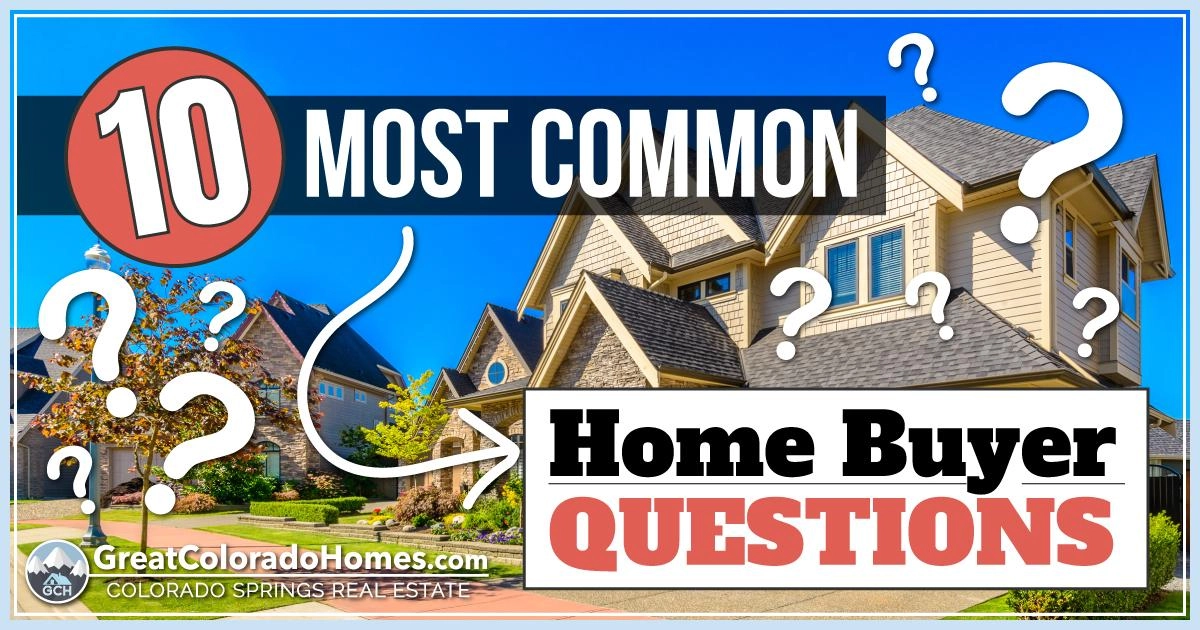
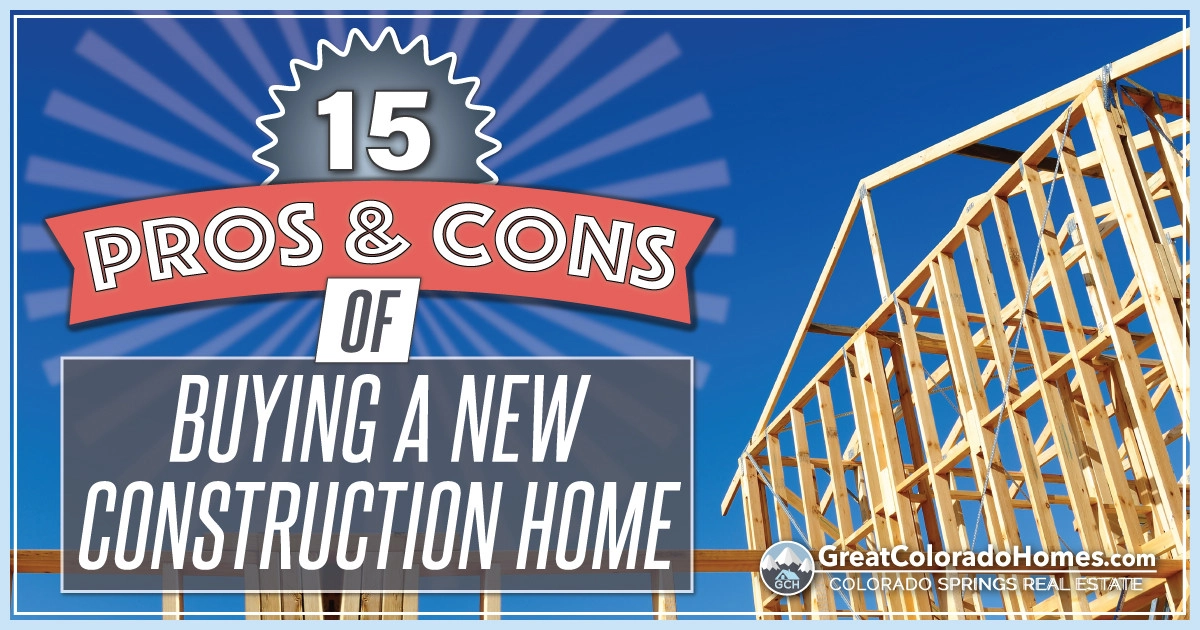
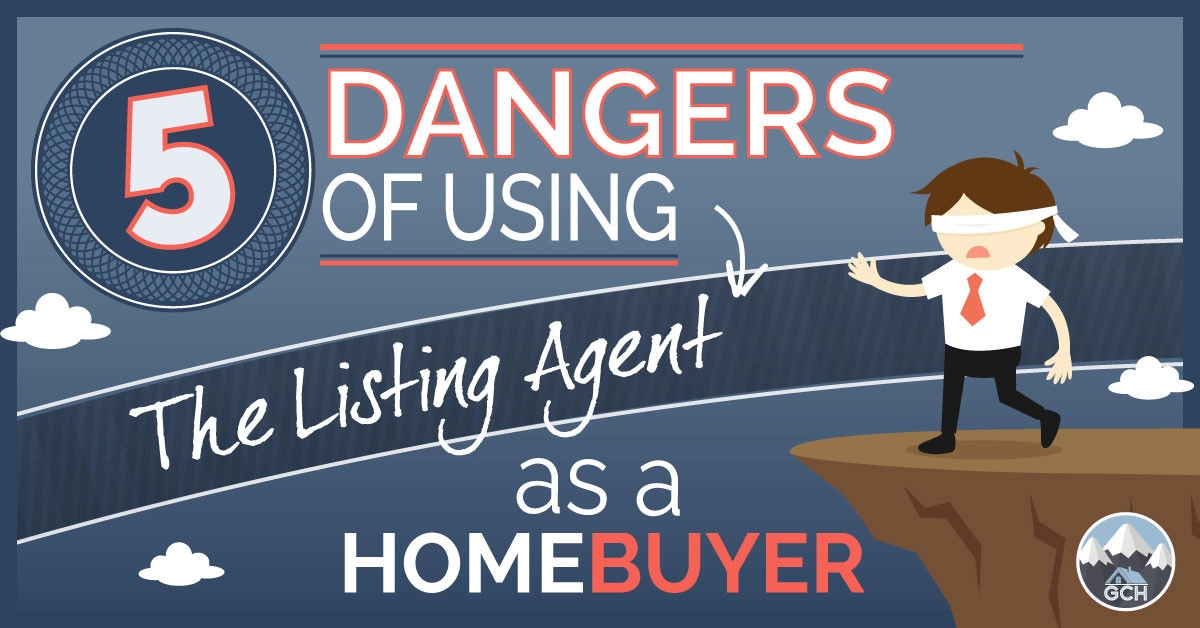
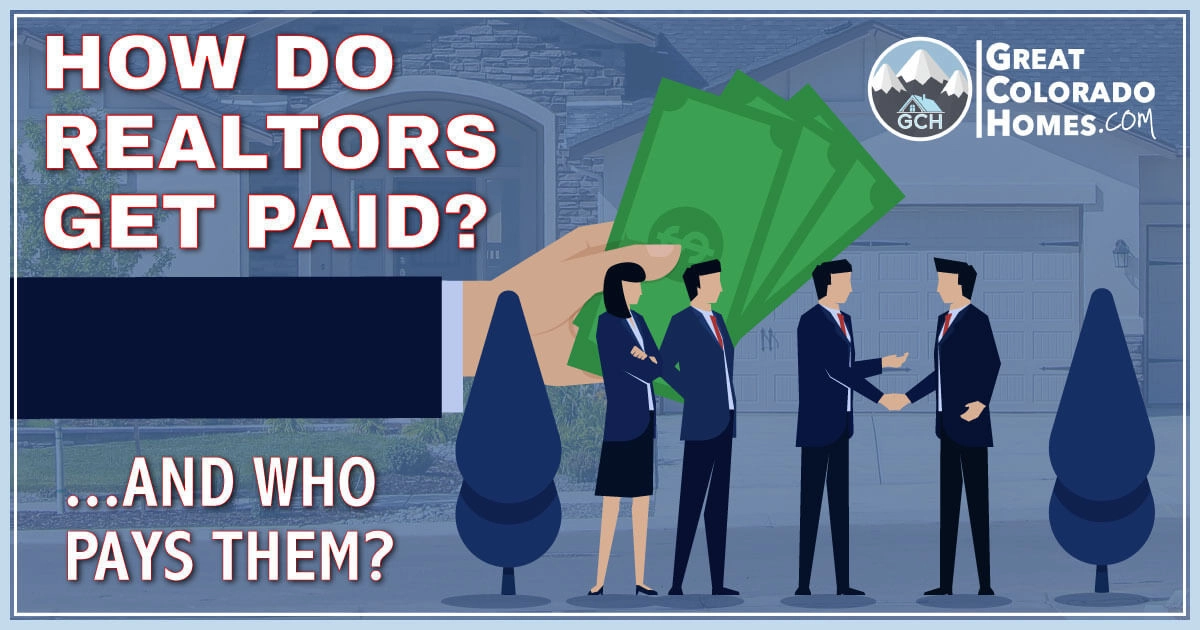
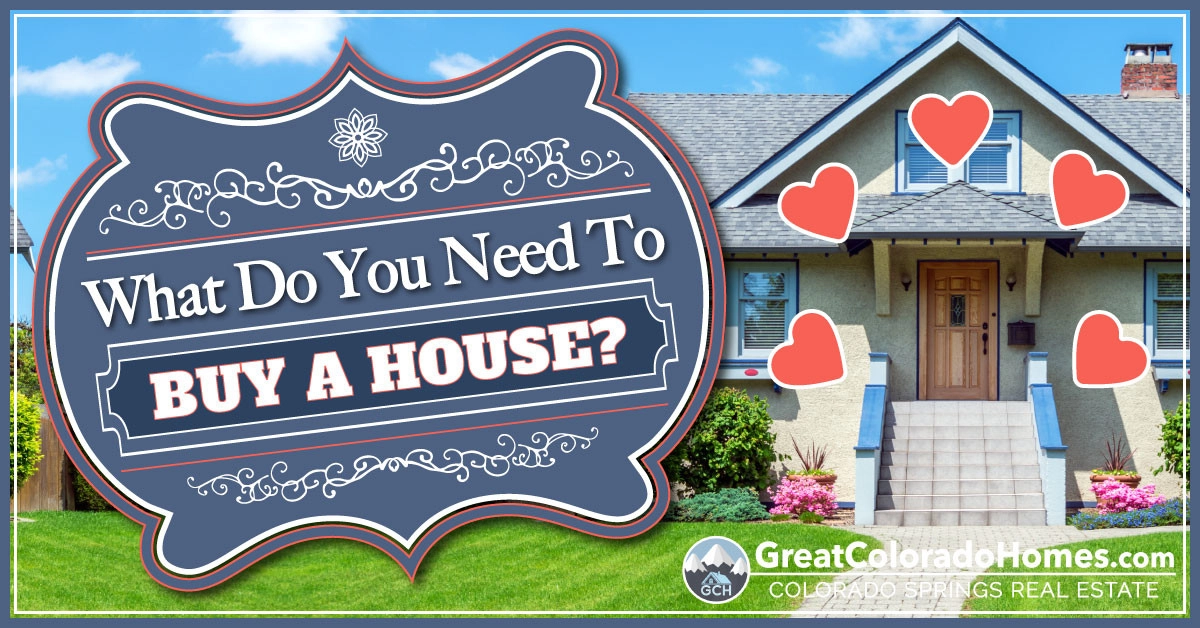

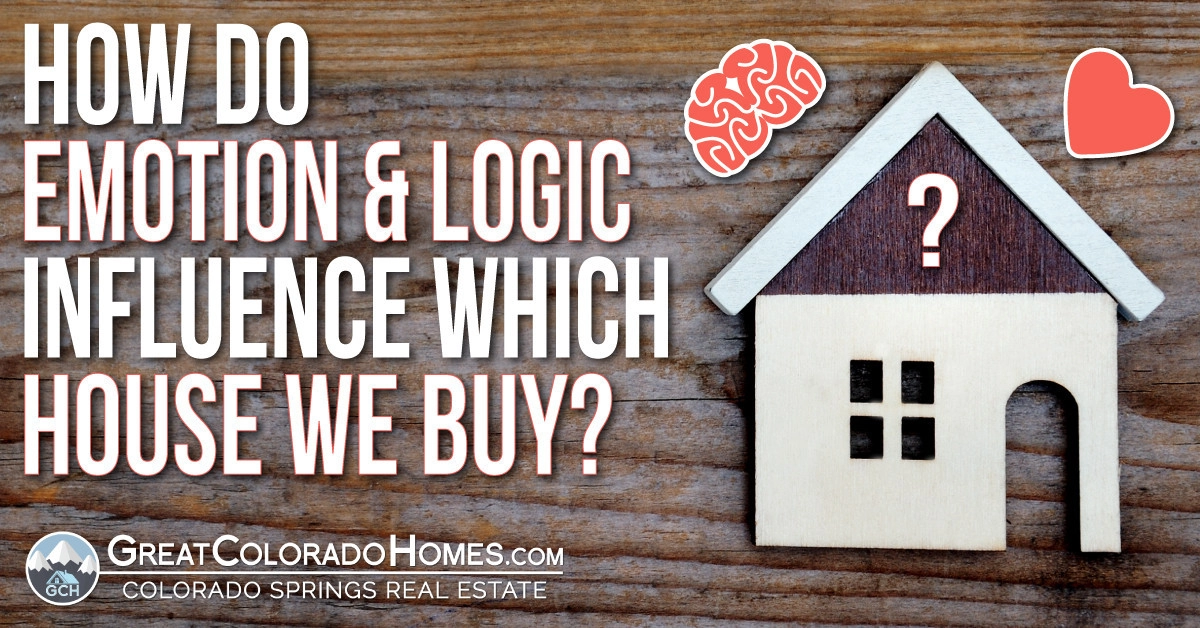
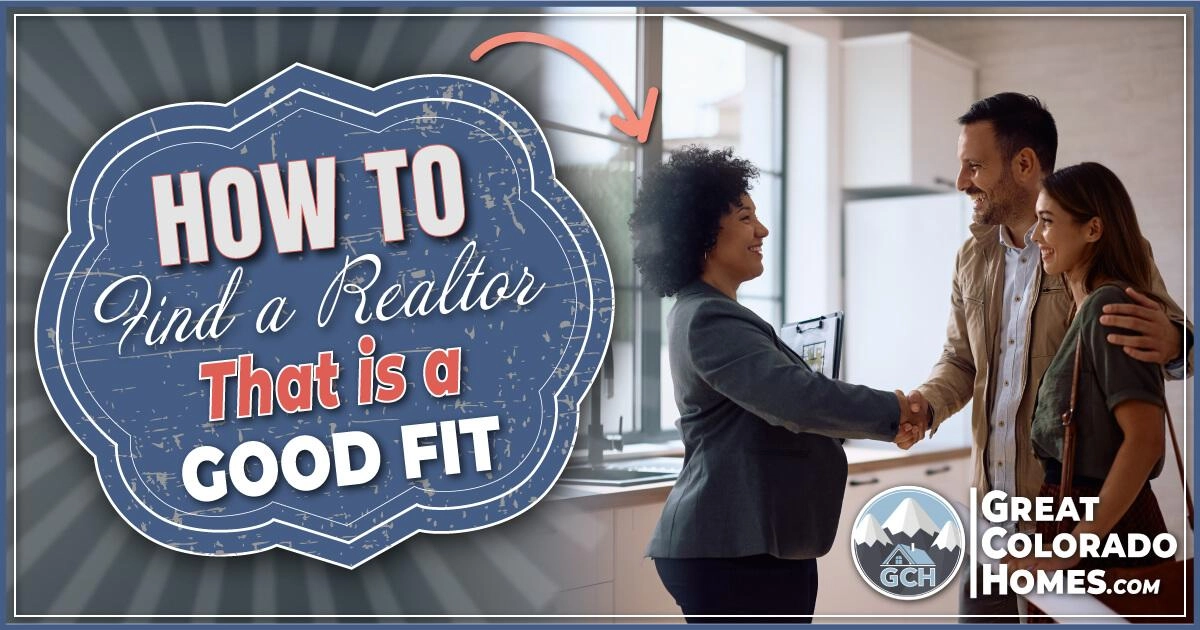
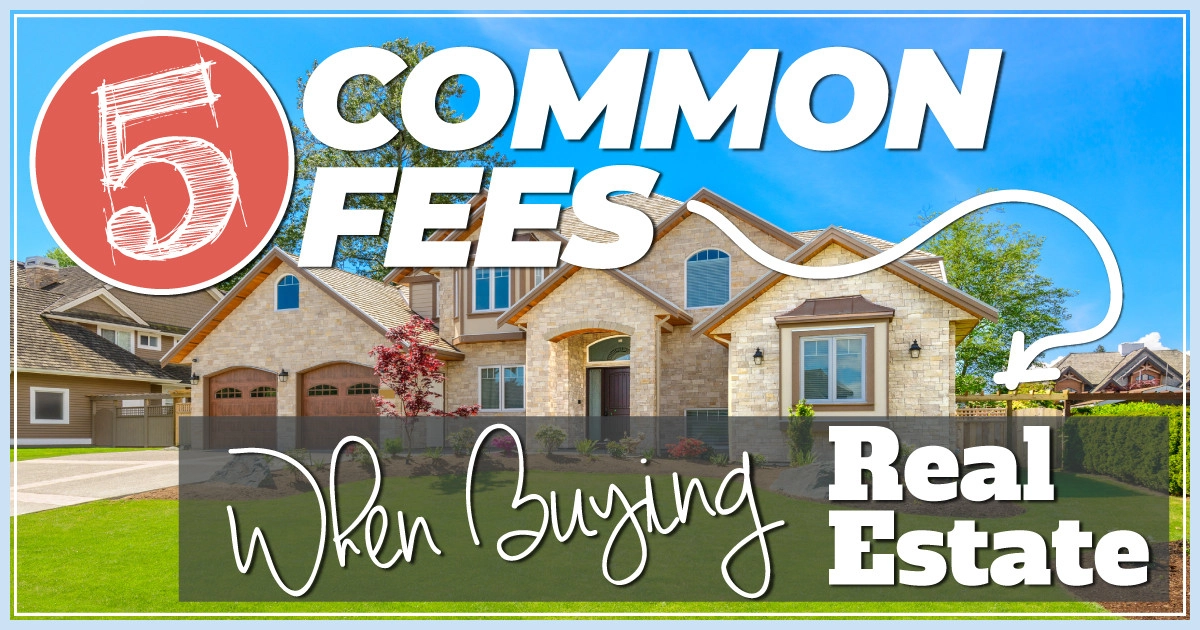
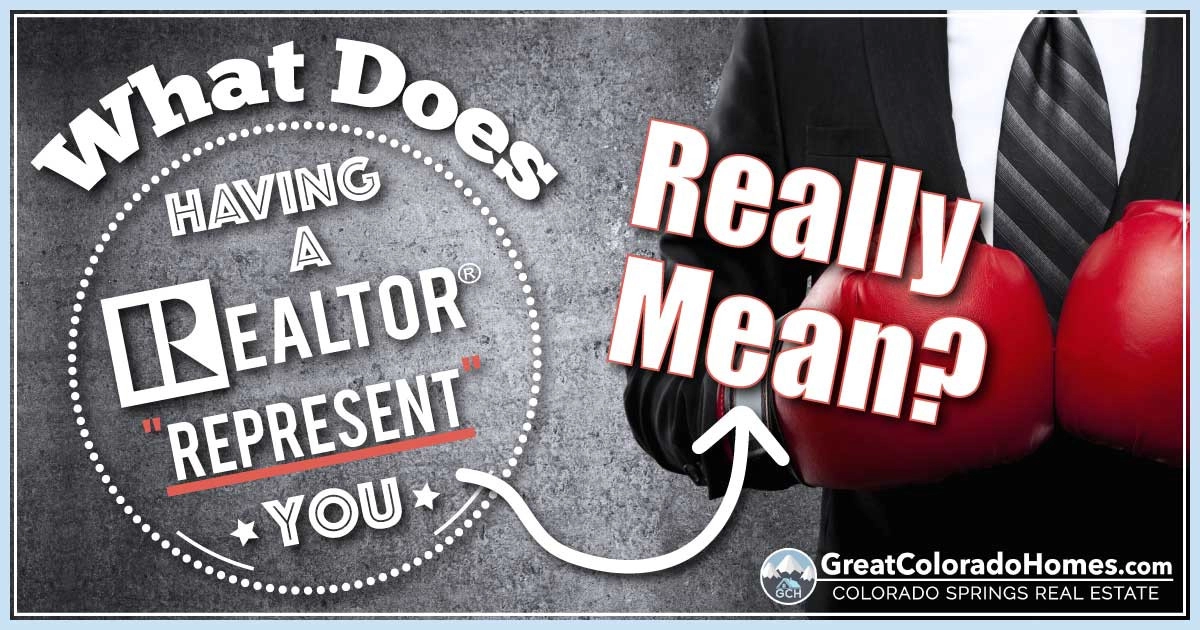

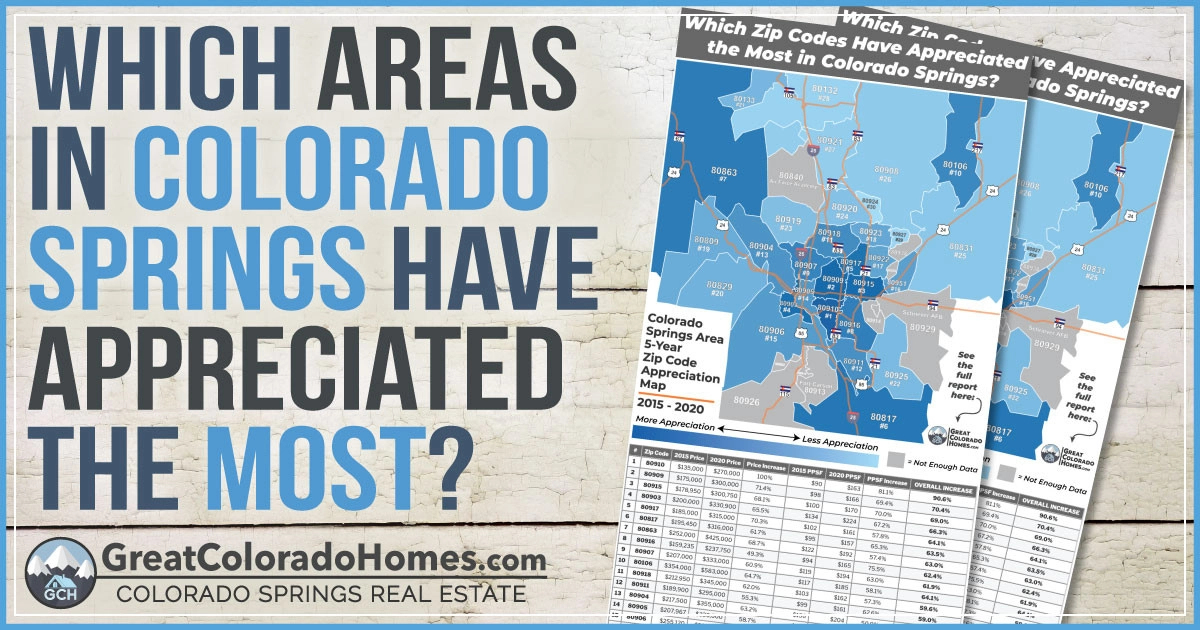
.png)
